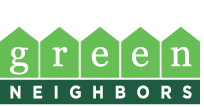Green Blog
What is household hazardous waste (HHW)?
Household hazardous waste (HHW) are products that have the potential to harm people, pets and wildlife due to their reactive, corrosive and/or toxic properties.
To identify HHW, look for words on the product label such as poison, danger, warning, caution, toxic, explosive or flammable. Such products should be taken to special collection facilities for safe disposal. They should never be thrown in the trash or poured down the drain because they threaten public health and the environment.
Common household hazardous waste
- Aerosols
- Antifreeze
- Batteries
- Degreasers
- Drain openers
- E-waste
- Fluorescent lights (seeLight Recycle)
- Fuel injection cleaners
- Household cleaners
- Medications
- Motor oil
- Paint
- Pesticides, herbicides, insecticides
- Sharps
- Solvents
- Thinners
- Wood preservatives
Things to consider when purchasing products
Before purchasing a product, read the label to get an indication of its ingredients and properties. Using non-hazardous or less-hazardous alternative products and recipes are the best option. For safer alternatives to common cleaning solutions, visit Clark County Composter Recyclers green cleaning resource guide.
To minimize your use of HHW products, visit the Environmental Protection Agency's Safer Choice website. If safer alternatives are unavailable, buy only the amount you need and follow these guidelines:
- Choose products with child-resistant packaging.
- Ensure you understand the hazards of a product's use, storage and disposal.
- Be aware that terms like "non-toxic" and "green" are advertising words and do not have a federally regulated definition.
- Avoid aerosol products when possible. Aerosols disperse hazardous substances that can be inhaled and absorbed into the bloodstream.
Safe disposal
Fortunately, Clark County residents can dispose of HHW at transfer stations within the county on most Fridays and weekends at NO COST. Chemical, biological, physical, and thermal treatments are enacted at these facilities to reduce the toxicity of the HHW products and correctly dispose of them, greatly reducing the associated environmental and health risks.
Residents can drop off household hazardous waste at the following locations and times (business-generated hazardous waste is not accepted at these sites):
Central Transfer Center Station
11034 NE 117th Avenue, Vancouver
360.256.8482
8 am to 4 pm | Friday, Saturday, and Sunday
View live stream of real-time lines
West Van Recovery Center
6601 NW Old Lower River Road, Vancouver
360.737.1727
8 am to 4 pm | Friday and Saturday
View live stream of real-time lines
Washougal Transfer Station
4020 S Grant St, Washougal
360.835.2500
8 am to 4 pm | First and third Saturdays
View live stream of real-time lines
Guidelines for dropping off hazardous waste
DO:
- Keep HHW products separate (do not mix).
- Bring products in their original containers when possible.
- Seal products to prevent leaks and spills.
- Keep products away from the driver and passengers, i.e., in a trunk, truck bed, or trailer.
- Keep children and pets away from collection sites and events.
DO NOT:
- Bring more than 25 gallons or 220 pounds of HHW to transfer station collection facilities.
- Bring asbestos, explosives/ammunition, or radioactive materials.
What about paint?
Not all paint is considered household hazardous waste, and as such may have different recycling requirements. Click on the flowchart below to determine what to do with old oil, latex, and aerosol paints in every situation!
Related articles: Recycling A–Z

